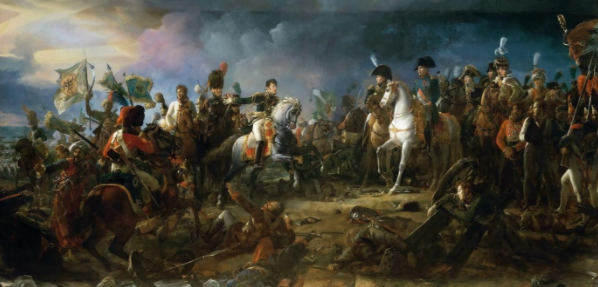|
KAI LIU Vol 11, Issue 10 In my continuing quest to procrastinate rather than do anything productive (and exploiting De Minimis’s generous publishing policy to do so), I present for your reading (dis)pleasure my (entirely unqualified) reviews of three history books. All were read on a Kindle. Why the Rest Rules – for Now: The Patterns of History, and What They Reveal About the Future
(Ian Morris) (2011) A fascinating read, and a more holistic theory compared to similar grand history narrative Guns, Germs and Steel. Ian Morris, a British classical historian and archaeologist, sets out a theory for societal development measured in ‘scores’. As with anything in history that is abstracted from the subjective to the ‘objective’, the developmental scoring system that is developed by Morris necessarily loses some clarity, and is hampered by the lack of good sources from certain periods of history. Morris deftly tracks the development of regions from their “cores” – from the Hilly Flanks and Mesopotamia in the West to the Yellow and Pearl River Valleys in the East, all the while maintaining a stringent narrative between the cores. In defining his cores, he abandons traditional concepts of ‘West’ and ‘East’, instead focusing solely on geography, and abandoning ‘Europe’ and ‘Asia’ as political concepts. Ignore the title – the book works better as an exploration of historical forces and development, rather than as a work predicting the future. Highly recommended read for anyone seeking an accessible ‘overview’ of World History. The Campaigns of Napoleon: The Mind and Method of History’s Greatest Soldier (David G. Chandler) (1973) Considered one of the seminal works covering the military aspects of Napoleon’s career, Chandler, who was a lecturer at the Royal Military Academy Sandhurst, covers Napoleon’s meteoric rise and long, protracted fall in 17 parts, covering 93 chapters. The longest of the three books on offer, this work is also one of the most detailed, with exquisite maps outlining in amazing detail the movements of Napoleon and his marshals on campaign. The work is sadly limited in focusing on Napoleon’s military campaigns, with only passing reference to the Peninsular Campaign and Trafalgar. Chandler also only briefly touches on Napoleon’s domestic and legal reforms, and only insofar as are necessary to understand the context of his grand narrative. This is a work of military history – it is not a holistic overview of the Emperor’s life. For that, Napoleon: A Life by Andrew Roberts comes highly recommended. If you’re interested in the campaigns of one of history’s great generals, this is a must read. If you’re more interested in the domestic and legal reforms of Napoleon, look elsewhere. China’s War with Japan, 1937 – 1945: The Struggle for Survival (Rana Mitter) (2013) Also published in the US as Forgotten Ally: China’s World War II, 1937 – 1945, Mitter, Professor of the History and Politics of Modern China at Oxford University, examines a chapter of World War II that is long forgotten and oft ignored in the West. Mitter opens his narrative with an examination of pre-war Republican China, a place of vast, sadly untapped, potential. Mitter also charts pre-war China’s complicated relationship with Imperial Japan. But the meat of the narrative charts the rise and fall of three competing visions for the future of China: The Nationalists led by Chiang Kai-shek in Chongqing, the Communists led by Mao Zedong in Yan’an, and the collaborators led by Wang Jingwei in occupied Nanjing. Mitter also goes some way in rehabilitating Chiang Kai-shek, in contrast to works from the Cold War such as Tuchman’s Stilwell and the American Experience in China, 1911-1945. Combining eyewitness reports and historic analysis, Mitter crafts an engaging, masterful narrative about the horrors of China’s 9-year struggle with Japan. Despite the title, much of the work focuses on the civilian experience of the War. Highly recommended for anyone seeking an overview of China’s experience of World War II. Kai Liu is a third-year JD student More articles by KaiThe rest of this issue Comments are closed.
|
Archives
October 2022
|



